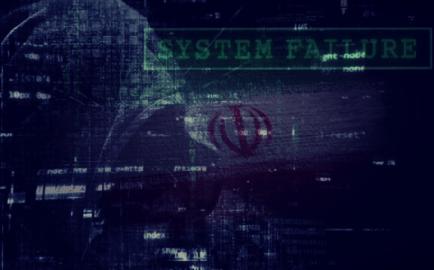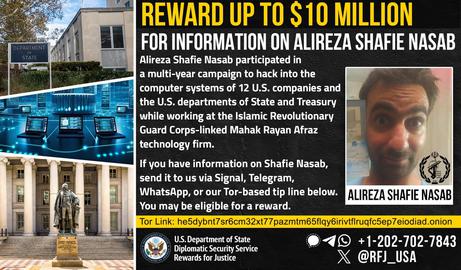Ali Reza Tahmassebzadeh is getting ready to launch the first intelligent modular watch, working with a team of 15 people to push the product into the global marketplace. After coming up with the idea, the 22-year-old, who won the golden medal for the World Physics Olympiad in 2010, prepared a video pitch and launched a Kickstarter campaign, with a target amount of $250 000. It took 56 minutes for the target to be reached. After two days, Tahmassebzadeh and his team raised more than $800,000. Supporters and investors have 30 more days to contribute to the BLOCKS initiative — a completely unique product that allows for people to choose the modules they want for a custom-built smartwatch. IranWire spoke with Ali Reza Tahmassebzadeh about the project and how it came about.
When did you leave Iran?
Two years ago, when I was 19. I applied to study at Imperial College in London and began studying Medical Engineering. I'd finished high school in Iran. I won the Kharazmi prize in Iran [one of the country’s most important science and mathematics awards]. Then I won the golden medal in the International Physics Olympiad 2010.
After you won the Olympiad medal you were not required to pass admission exams to go to university. You could have chosen to study whatever field you wanted to at any university in Iran. Why didn’t you go to Sharif or Tehran Universities?
This is a very good question, because I first went to university in Iran. I chose to study electrical engineering at Tehran University and continued my studies for six months. I never thought that its standards were not good enough or scientifically inadequate. I think that, at least at undergraduate levels, universities such as Tehran and Sharif have a high scientific educational level. If my goal was only to study a university course, I would have remained in Iran, because I think Tehran and Sharif Universities are good places to start. But my goal was to enter the international market. This was the reason I left Iran. I wanted to make my ideas come true.
Why did you choose to study medical engineering?
I chose medical engineering because I have always been interested in how humans can control computers and technology with their brains. At first I was thinking about studying brainwaves and the idea of controlling a mobile computer or game console with the brain. Then I thought maybe I could do something to be able to read human body movements or control a smart phone with hand movements — for example, to be able to cut off music or control the volume by turning your wrist when listening to music on a smart phone.
Where did the idea of the BLOCKS watch come from?
First the idea was to make a smart bracelet that could be controlled by hand movements. For example, to connect to a contact with one movement and cut the connection with another. In summer 2013, I was preoccupied with thoughts of what other features such a bracelet should have. I had a few ideas, but when I talked to other people and conducted a survey, I realized that each person was talking about different necessary features. Some preferred to have a display on the bracelet; some preferred a round display, while others wanted a square display; one person wanted to know about how his heart was performing, while someone else wanted to have his shopping list to hand; someone else wanted to monitor a health condition he had using the bracelet, while others wanted it to have GPS.
I wanted to put all these features in one device, but the battery consumption and the price did not allow for it. I searched for solutions. I went to Iran one Christmas holiday and I came up with the idea of a modular design. This would solve the problem. Instead of me deciding which feature to put in the device, the person who buys the product can decide, select his own features and connect the suitable part to the watch to build his own version. This is how BLOCKS came about.
So the watch is sold in parts. How much is each block?
Yes, the watch consists of one main display and a bracelet made of different parts that perform different functions, like a SIM card or GPS. The price for the main display with four modules will be $285.00.
Why did you decide to use Kickstarter to drive the project?
Kickstarter is straightforward, and many start-ups use it to establish their products. No matter how hard you try to describe the product to investors, they are unlikely to accept it. The best way is to introduce your product using the website to ask people to pay up front for it. Some people think that with Kickstarter you get money from people to build your product, but for large projects this is not the way it works. Kickstarter is, rather, proof for investors that the product has a market. Once they have seen it has a market, they will be more likely to invest. We received the first part of the money from investors and then introduced the product on Kickstarter. Now we will be able to work on the design and produce a popular product.
Did you ever imagine you would reach your goal in one hour, and gain four times the amount of your target within two days?
It was not totally unimaginable. It is now about two years since I started up and began directing this project. We have 15 people who now work full time on this idea. News agencies broadcast news about the watch a year ago. We have had good support and we knew how many people liked the product along the way. On the other hand, most companies usually put a target on Kickstarter but know they are going to raise more.
What do you think might have happened if you announced your idea in Iran?
This idea could definitely not be developed in Iran. This project could not see the light of day, not only in Iran, but anywhere else except Britain. Because for such a complex start-up, we need many investors who are ready. In Iran there are many people working on apps as start-up companies and I see a good future for them. Maybe I will give it a try one day. If I had stayed in Iran, I would have chosen the same path and set up a start-up there.
You are a successful figure now. How do you feel when you hear that?
Well, it takes time. I have heard people talk about it. I do want to do bigger things and want to achieve something important. But people cannot do something big from the very beginning. This is my first start-up. Maybe I will get better and better. I want to work on things that are important for man and the future of human beings.
Related articles:
visit the accountability section
In this section of Iran Wire, you can contact the officials and launch your campaign for various problems






















comments